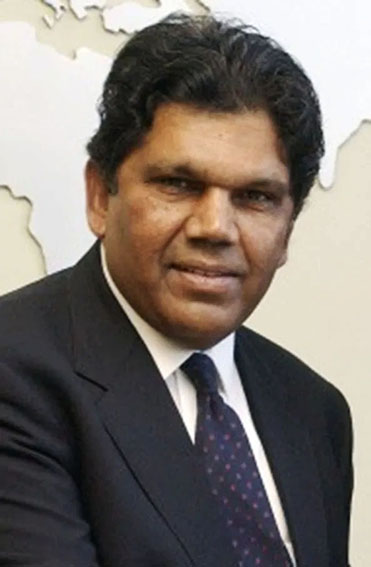Former UN Under-Secretary-General; Seventh Chancellor of the University of Guyana
Guyana remains in search of a national consensus. One sees this in the ongoing contestations in the media and elsewhere. Guyana needs to heal, and the UN could help, if Guyana uses the opportunities presented to it.
On 4 December, 2020, the UN High Commissioner for Human Rights, Ms. Michelle Bachelet, former President of Chile, wrote to Foreign Minister Hugh Todd and Governance Minister Gail Teixeira, copying the UN Resident Coordinator, Ms Mikiko Tanaka. The letter of the High Commissioner is published on the website of the Office of High Commissioner.
The High Commissioner recalled that as part of the four-yearly Universal Periodic Review Process, Guyana’s report had been considered by the UN Human Rights Council in January, 2020 and that a number of recommendations had been made to Guyana inside the Council. The High Commissioner forwarded a list of those recommendations and highlighted some that she thought required urgent follow-up.
The High Commissioner ‘welcomed the commitment of Guyana to strengthen the transparency of the electoral process’ and was ‘encouraged by the decision of Guyana to undertake a participatory process of constitutional reforms to ensure inclusive governance and respect for human rights, social harmony and reduced inequality for all.’
She ‘encouraged Guyana to develop a comprehensive national human rights action plan in order to achieve concrete results’. She encouraged Guyana to establish a national mechanism for comprehensive reporting and follow-up of recommendations received from international and regional human rights institutions.
The High Commissioner thus singled out four areas for particular attention by the Government: transparency of elections; a participatory process of constitutional reforms; the adoption of a national human rights plan of action; and the establishment of a national mechanism for the preparation of national reports and for following up on recommendations.
The recent period has been a charged one for the Government and it is not known what action has thus far been taken to follow up on the High Commissioner’s letter. It would, however, seem important for Parliament to be informed and to be involved in the consideration of these issues. The High Commissioner encouraged Guyana to consider submitting to the Human Rights Council by the end of 2022 a mid-term report on follow-up to its recommendations. Guyana could seize this opportunity.
An Annex to the High Commissioner’s letter details crucial areas where action would also be needed to help foster a national consensus and to advance the cause of justice in Guyana. We make a selection of these areas below, using the terms in the High Commissioner’s letter:
The environment: Strengthening legislative, policy and institutional measures to protect and fulfil the right to a healthy environment and prevent any environmental degradation and adverse effect on biodiversity that may result from extractive activities.
Elections: Reforming the legislative, policy and institutional framework to ensure free, fair and transparent electoral processes in line with international standards, including by strengthening the independence and transparency of electoral bodies and procedures.
Indigenous people: Revising the Amerindian Act and other relevant legislation with a view to aligning them with the United Nations Declaration on the Rights of Indigenous Peoples and guarantee the full recognition and protection of the rights of indigenous people on their lands, territories and resources.
National human rights institutions: Continuing efforts to strengthen the institutional framework for the protection of human rights, including by establishing an independent national human rights institution in line with international principles.
Non-discrimination: Continuing efforts to strengthen the legislative, policy and institutional framework to combat all forms of discrimination, including racial discrimination.
The justice system: Continuing efforts to strengthen the justice system, by enhancing its efficiency and increasing access to justice for vulnerable groups, through the establishment of legal aid clinics in all regions.
Improving prisons: Taking further measures to address prison overcrowding and ensure that conditions of detention are in line with international standards.
Reducing poverty: Enhancing measures to reduce poverty and provide access to basic services for all, including by continuing efforts to improve access to water and sanitation for all.
Protecting women: Stepping up efforts to prevent and eradicate all forms of violence against women, through the full implementation of existing national legislation and policies as well as the strengthening of relevant institutions.
Protecting children: Further strengthening the legislative and policy framework for the protection of children, including by prohibiting corporal punishment in all settings, establishing the minimum legal age of marriage at 18 years, and continuing efforts to eradicate child labour.
International reporting: Establishing a permanent national mechanism, open to participation of civil society, to ensure comprehensive reporting and follow-up on international recommendations.
There are many other recommendations that the High Commissioner forwarded. We have selected the ones that are of a structural nature, related to the future architecture of governance in Guyana. We have always written from a non-partisan perspective, as a patriot wishing to contribute to the promotion of a national consensus in Guyana. Should it not be possible for Government and Opposition to cooperate in developing policy responses to these recommendations? Could not Parliament help shape Guyana’s engagement with the UN on these and related issues?
Rise, Guyana; Rise to your Destiny of Multiculturalism, Justice, and Fair Governance. It is in entrenching a culture of human rights that we can foster national cohesion. Engaging with the UN in good faith could help promote a national consensus in our Dear Land of many waters and peoples. Seize the moment, Government and Opposition. Rise, Guyana; Rise to your Destiny.






